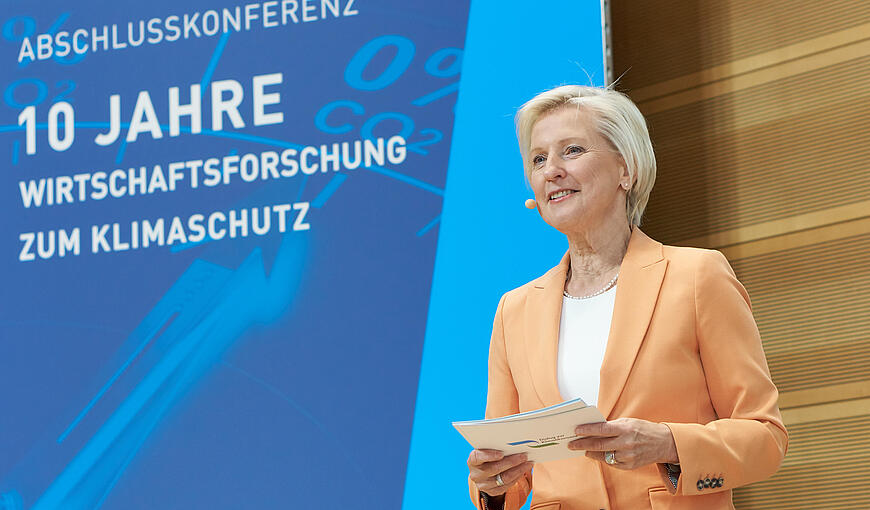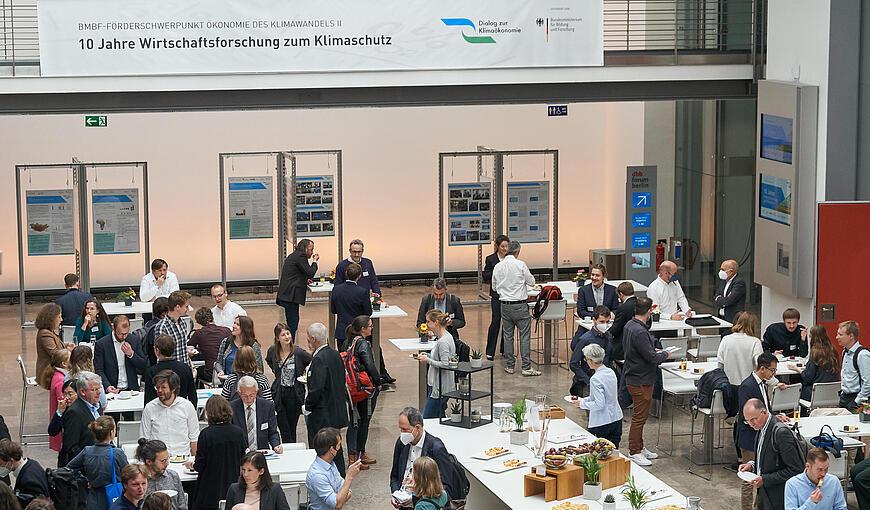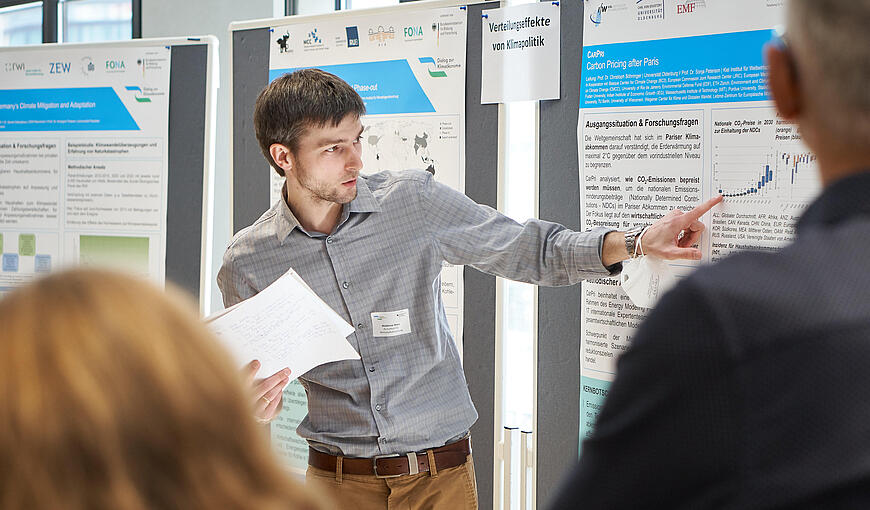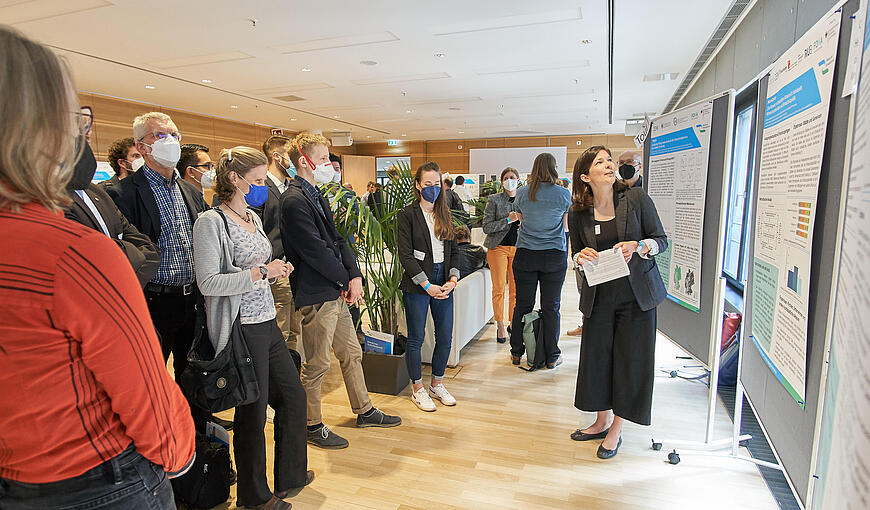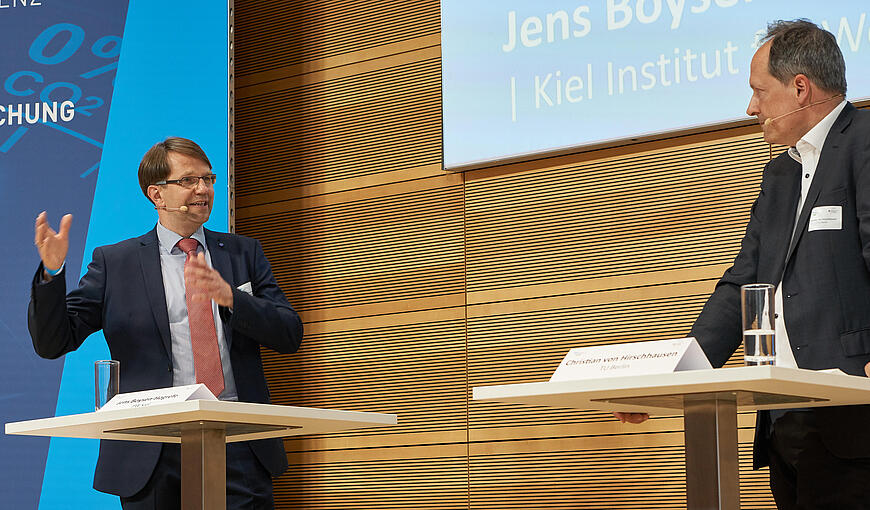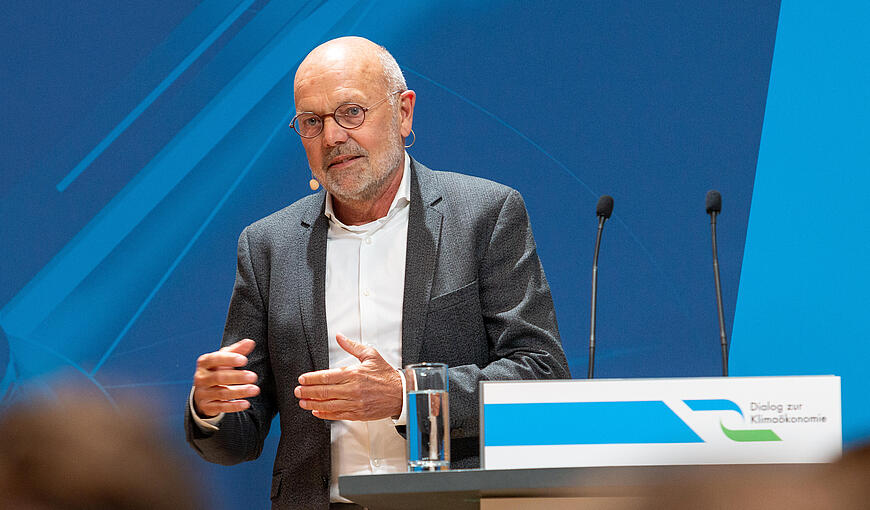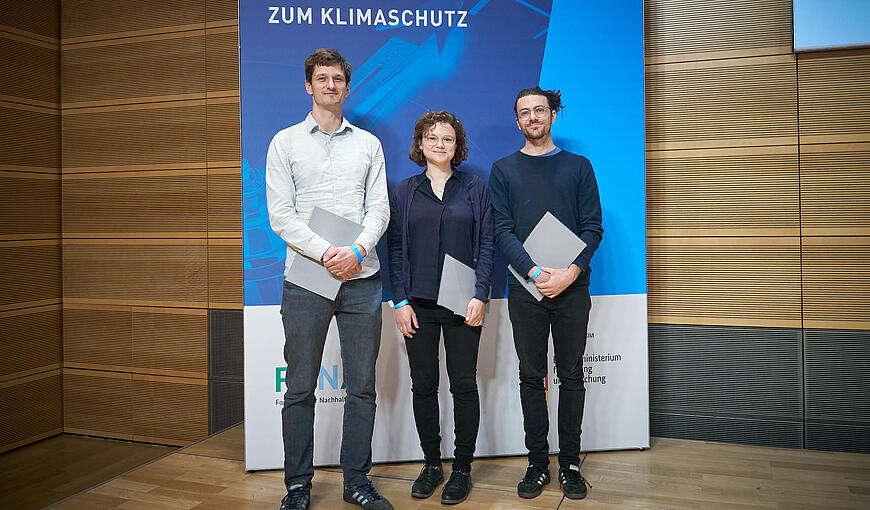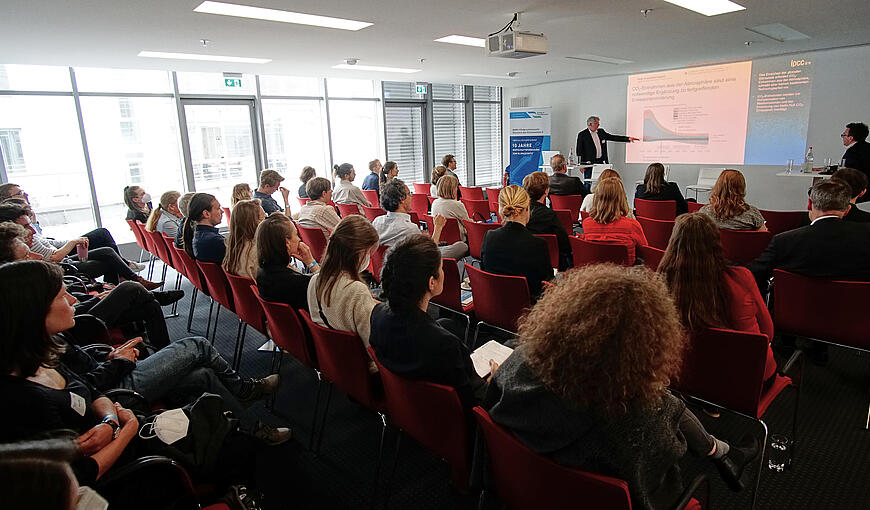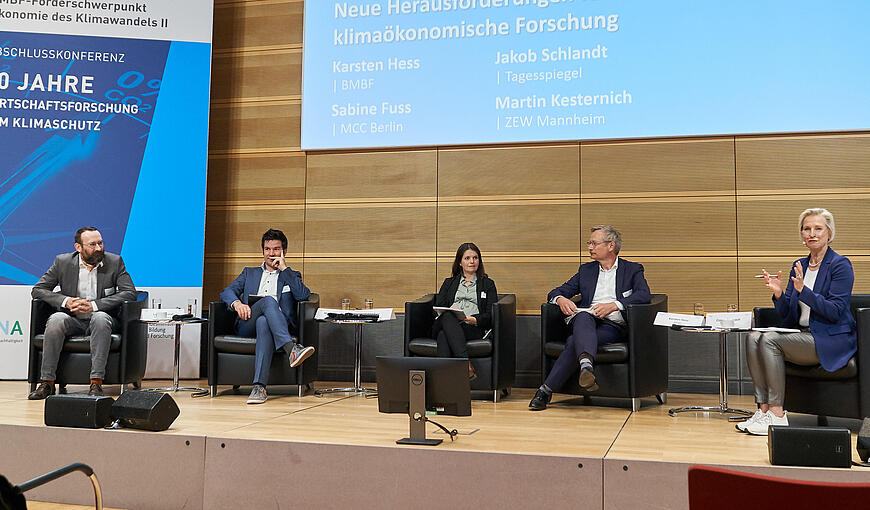Final Conference
10 Years of Economic Research on Climate Change
Recognition of research achievements in the BMBF funding measure Economics of Climate Change II
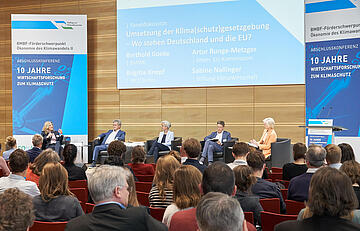
For more than 10 years, the German Federal Ministry of Education and Research (BMBF) has funded research projects in the field of the economics of climate change. On May 30 & 31, 2022, about 150 participants from academia, politics, society and business wrapped up the second funding phase at the conference "10 Years of Economic Research on Climate Change". It was the first meeting in a long time to present and discuss the results of the research conducted by the 29 project consortia. A varied program in the tradition of the Forum Climate Economics series led through the two days and provided an opportunity for exchange on climate policy challenges in the context of the current global political situation and on the longer-term tasks for climate economics research in the societal transformation process.
State Secretary Sattelberger Demands "Rigor AND Relevance" from Science

Dr. h.c. Thomas Sattelberger, Parliamentary State Secretary at the BMBF, emphasized in his welcoming address that climate change and economic issues related to it must remain important even in the face of the pandemic and war in Europe. Only with research, new technologies and innovations can the climate goals be achieved and adaptation to climate change succeed. Three important fields of action of the BMBF in this regard are: 1. the national hydrogen strategy, 2. research on negative CO2 emissions, and 3. a new funding priority on the topic of "climate protection and the financial sector". It is particularly important to investigate which instruments, beyond regulatory law and subsidies, constitute the strongest levers for transformation in an eco-social market economy. Analytical precision versus relevance are not antagonists in this context; instead of "rigor or relevance," it should be "rigor and relevance". State Secretary Sattelberger called on the scientific community to speak up, because discourse remains an important driver of change.
First conference day focuses on political discussion
The first day of the conference opened with a panel discussion on the current state of implementation of German and European climate protection legislation, moderated by Conny Czymoch. Berthold Goeke (Federal Ministry of Economics and Climate Protection, BMWK), Artur Runge-Metzger (retired Director, DG Climate Policy, EU Commission), Brigitte Knopf (MCC Berlin and Expert Council for Climate Issues) and Sabine Nallinger (Stiftung KlimaWirtschaft) engaged in lively discussions with the audience. In addition to decentralized discussions on current topics in climate economics and poster sessions to present project results, an optimistic energy economist (Christian von Hirschhausen, TU Berlin) and a pessimistic economic researcher (Jens Boysen-Hogrefe, Kiel Institute for the World Economy) engaged in a lively debate on the impact of the war in Ukraine on climate protection. One saw the European political signs as pointing to increased expansion of renewables and Russia as too isolated to negatively influence other countries in climate negotiations. The other saw Europe as merely moving away from Russian gas to fossil fuels from friendly countries. The split in commodity markets, Boysen-Hogrefe said, was leading to a shift in production to low-energy price countries friendly to Russia, thus weakening the climate impact of the EU ETS.
Early Career Best Paper Award ceremony
Another highlight was the recognition of the three best papers published by young researchers in the course of their doctoral studies within a project of the funding priority Economics of Climate Change. Hannes Greve (GIGA Hamburg), Lorenzo Montrone (MCC Berlin) and Svenja Fluhrer (PIK) were honored for their excellent research papers. More information
The second day of the conference is dedicated to challenges for academia

In addition to a variety of decentralized discussion panels and poster sessions, a highlight of the second day was the keynote by Cameron Hepburn (Smith School of Enterprise and the Environment, Oxford University) on "The state of climate economics." He explained his view on the current state of climate economics research by presenting where he sees progress, challenges, and new directions for research. The lively Q&A session after his keynote almost made one forget that he participated via videocall. The final panel, "Quo vadis Climate Economics," also addressed the question of what challenges remain for climate economics research and as well as for research funding. Karsten Hess (BMBF) and Jakob Schlandt (Tagesspiegel) discussed this question with Sabine Fuss (MCC) and Martin Kesternich (ZEW). With this final panel the conference, the funding measure Economics of Climate Change and the accompanying Dialogue on the Economics of Climate Change came to an end with a touch of wistfulness.
Impressions of the conference
-
Moderator Conny Czymoch
-
Coffee break
-
Waldemar Marz in the poster session "Distribution effects of climate policy"
-
Ramona Gulde in a poster session
-
Debate "The global political situation - accelerator or brake in climate protection?" between Jens Boysen-Hogrefe and Christian von Hirschhausen
-
Gernot Klepper gives a retrospect on the funding measure
-
Winners of the Early Career Best Paper Award Hannes Greve, Lorenzo Montrone and Svenja Fluhrer
-
Elmar Kriegler in the session "Results of the IPCC Report - challenges for Germany"
-
Paneldiscussion "Quo vadis Climate Economics? New challenges for climate economics research" with Jakob Schlandt, Martin Kesternich, Sabine Fuss, Karsten Hess and Moderator Conny Czymoch
